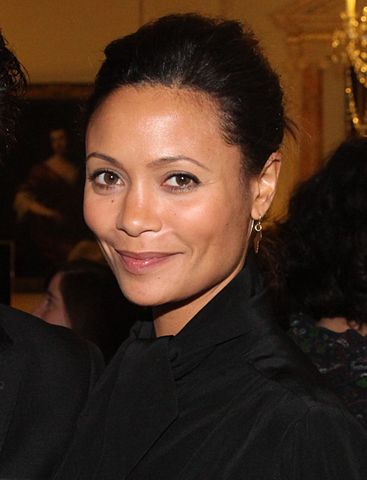
Warning. This review contains several spoilers about the first season of the TV show “Westworld”!
On December 4 the first season of the show “Westworld” ended.
The TV show is inspired by the 1973 movie “Westworld”, written and directed by Michael Crichton. The story was based on the theme that was already a classic of the machine that rebels to humans, in this case in a futuristic amusement park.
Meanwhile, “Blade Runner” was released and it changed completely this kind of story making the boundary between human and artificial beings much more blurred. Today it would be unthinkable to propose a plot like that of the 1973 movie and already in the past decade the new version of “Battlestar Galactica” assimilated the lesson of “Blade Runner”.
“Westworld” first season cast consists of:
- Anthony Hopkins (photo ©gdcgraphics) as Robert Ford
- Ed Harris as the Man in Black
- Evan Rachel Wood as Dolores Abernathy
- Thandie Newton (photo ©Ministry Of Stories) as Maeve Millay
- Jeffrey Wright as Bernard Lowes
- James Marsden as Teddy Flood
- Ingrid Bolsø Berdal as Armistice
- Luke Hemsworthy as Ashley Stubbs
- Sidse Babett Knudsen as Theresa Culle
- Simon Quarterman as Lee Sizemore
- Rodrigo Santoro as Hector Escaton
- Angela Sarafyan as Clementine Pennyfeather
- Shannon Woodward as Elsie Hughes
- Ben Barnes as Logan
- Clifton Collins Jr. as Lawrence
- Jimmi Simpson as William
- Tessa Thompson as Charlotte Hale
The TV show “Westworld” is set in a huge amusement park where human guests can take part in what are essentially role play games together with hosts, robots built to be as similar to humans as possible. However, the attempts to program the hosts seem to give occasional problems that cause abnormal behavior.
As in “Blade Runner”, the idea is to have more human hosts of humans but in “Westworld” the theme is the birth of self-awareness in robots. Some of them seem to keep pieces of memory that are supposed to have been deleted and it’s only the beginning. Robert Ford, one of the founders of the Westworld park and its creative director, has spent decades programming the hosts to build in them a psychological profile that makes them similar to humans.
The writers were also inspired by the controversial essay “The Origin of Consciousness in the Breakdown of the Bicameral Mind” (Amazon USA, Amazon UK
, Amazon Canada
) by psychologist Julian Jaynes. According to him consciousness in humans didn’t emerge since the birth of the species but only relatively recently. He claims that consciousness isn’t a biological fact but rather cultural and emerged at different times in different parts of the world based on a metaphorical language. For example according to Julian Jaynes consciousness emerged in the inhabitants of Greece and Mesopotamia about five millennia ago. Before then humans had a so-called bicameral mind that caused them auditory hallucinations they interpreted as voices of their leaders or gods.
In the course of the episodes we see the emergence of self-awareness in particular in two hosts, Dolores and Maeve, who remember more and more of their past which in theory was deleted. Their stories intersect with those of many guests developing various mysteries. The Man in Black’s history is part of the mystery of the labyrinth, which ends up involving Logan and William, two other guests. This story intersects with that of another host, Teddy, who is also involved in the mystery of Wyatt, another character whose real identity remains obscure until season finale.
These are just some of the subplots but there are also the ones concerning what’s happening behind the scenes of the adventures played in the park. At first it seems that the story is focused on the problems experienced by some hosts and the relationships among the humans working at Westworld but gradually a much larger story gets developed.
A subplot concerns of power clashes for control of Westworld. Robert Ford is the only one who really knows the programming of hosts and there are doubts as to whether he knows it completely. A part of the original programming was written by Arnold, his partner, who died many years earlier but somehow is still present.
The continuous intertwining among the various subplots provides a result that in my opinion is amazing. I found the mix of introspection, various philosophical elements and intrigue developed very well and very engaging. The idea that in the park a guest shows who he/she really is becomes a basis for a whole series of ethical reflections on humanity. The term can be taken in a broad sense because in the end the “special” hosts also show who they really are.
“Westworld” is really a great production from all points of view. In the first episode at times I felt like I was watching a western movie seeing some landscapes. The acting is generally of a high standard with some extraordinary peaks: no one should be surprised by the preformance of an actor like Anthony Hopkins and yet at times his ability to act using a lot his body language with many little but significant gestures impressed me very much.
The writers managed to put together various subplots intertwined in a thousand ways, leaving clues here and there on the various mysteries. Many questions led the audience to make up many theories and in recent episodes answers started arriving with a number of twists.

The season finale brings more revelations and at the same time leaves some open questions and lays the groundwork for the second season. In a period when it seems that movies and TV shows must have breakneck paces I appreciated a production that develops its content with a pace that allows the audiece to appreciate the various narrative elements. “Westworld” has quickly become one of my favorite TV shows and I hope it will continue with the same excellent quality.


Permalink
Permalink